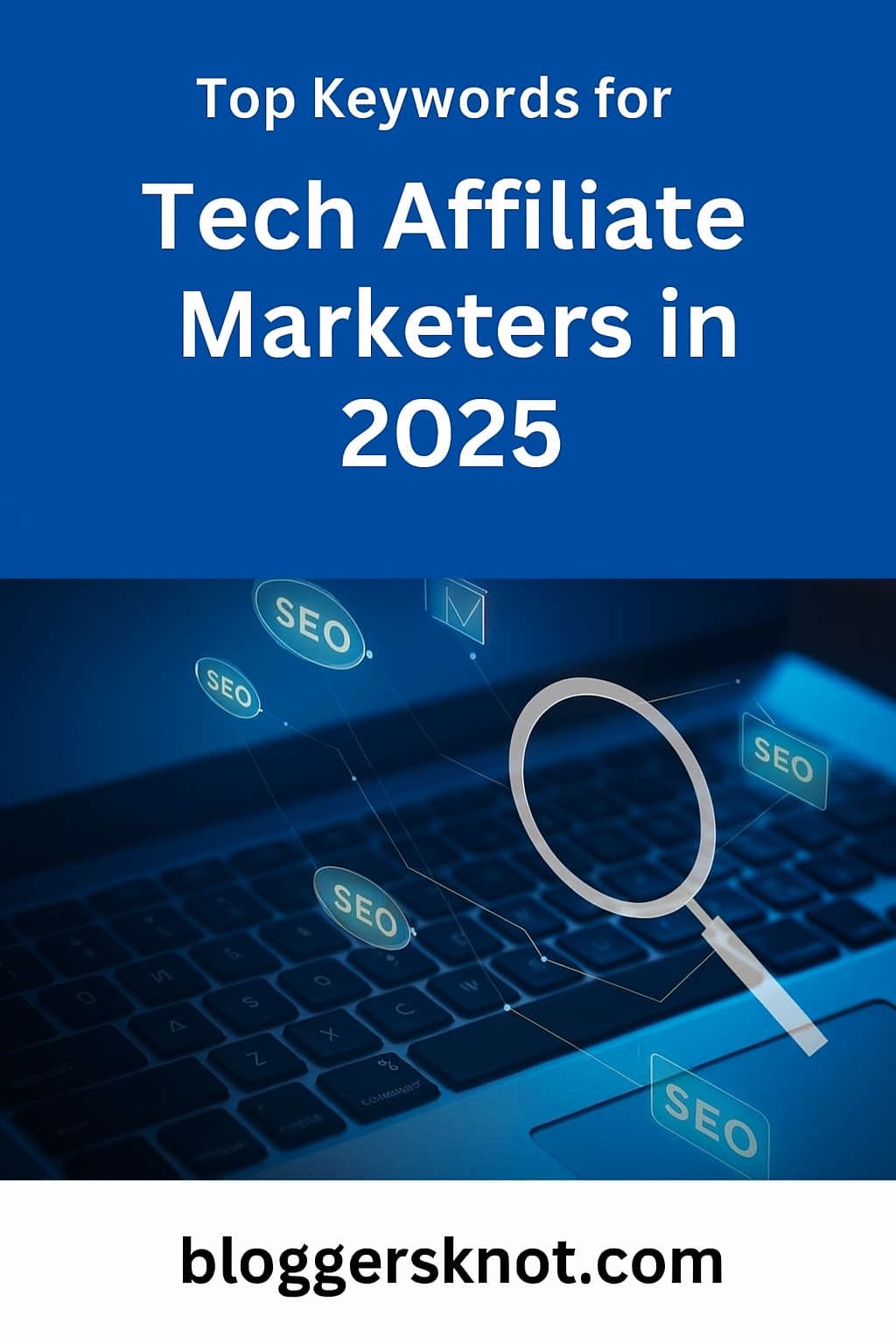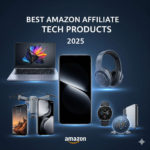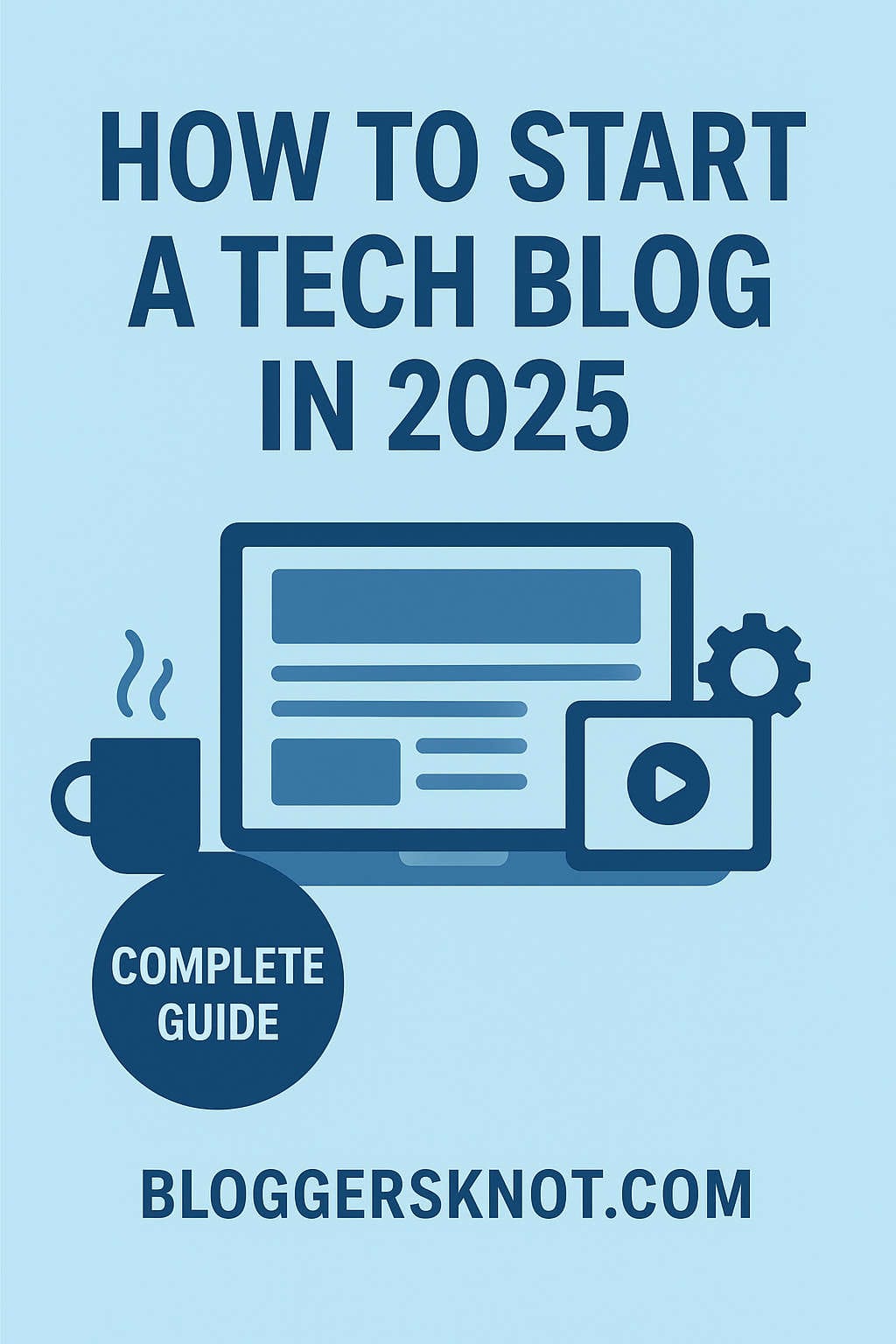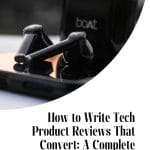Affiliate marketing is always evolving, but in 2025 it feels like we’ve entered a completely new era. Search engines are powered by AI summaries, voice assistants are smarter than ever, and people are shopping through social media and creator storefronts at record levels. If you’re a tech affiliate marketer, this shift is both exciting and overwhelming.
The good news? Keywords still matter. They remain the foundation for connecting with potential buyers. But the way we research and use keywords has changed. It’s no longer about chasing high-volume terms alone — now it’s about matching intent, optimizing for conversational queries, and creating content that performs across search engines, AI assistants, and social platforms.
This comprehensive guide breaks down the top keywords for tech affiliate marketers in 2025, explains why they work, and shows you how to use them in practical content strategies. By the end, you’ll have a clear roadmap for building traffic and driving affiliate sales in the tech space.
Why Keywords Still Matter in 2025
Search engines and discovery platforms are more sophisticated than they’ve ever been. Google, Bing, and AI-driven search engines now serve summaries, conversational answers, and shopping recommendations directly on the results page. TikTok and YouTube act like search engines themselves. Even Alexa, Siri, and Google Assistant are shaping purchase decisions with voice-based recommendations.
So, do keywords still matter? Absolutely. Here’s why:
- Keywords reveal intent. Phrases like “best gaming laptop under $1000” or “VPN for streaming Netflix” tell you exactly what the user wants — and when you meet that need, conversions happen.
- Keywords help AI understand your content. Structured, intent-driven keywords help AI summaries pull accurate snippets from your page.
- Keywords bridge multiple platforms. Whether someone types, speaks, or searches via social media, the language they use still revolves around keywords and phrases.
The difference in 2025 is how you select and structure them. Long-tail keywords, question formats, and intent modifiers now carry more weight than sheer search volume.
The Major Tech Keyword Niches That Convert in 2025
Let’s dive into the categories where tech affiliate marketers should focus this year. Each niche includes keyword examples, buyer intent, and the types of content that tend to convert best.
1. AI and Productivity Tools
Artificial Intelligence is no longer futuristic; it’s mainstream. Businesses, creators, and even students are subscribing to AI tools that make their work faster and easier. This category is booming for affiliates because most tools run on monthly subscriptions — meaning recurring commissions for you.
Keyword examples:
- AI writing tool
- AI code assistant
- Best AI image generator 2025
- Affordable AI video editor
- AI tools for small businesses
Question keywords:
- What is the best AI writing tool for SEO?
- Is [Tool Name] worth the subscription?
- Which AI tool is best for ecommerce product descriptions?
Content that works:
- Side-by-side tool comparisons
- “Best for” roundups (e.g., best AI tools for students, marketers, or developers)
- Step-by-step tutorials showing how to use the tool
2. Smart Home and Consumer Hardware
Smart homes are here to stay. From wearables to doorbell cameras, people want devices that make life easier and safer. Hardware often has higher ticket prices, making it lucrative for affiliate marketers.
Keyword examples:
- Best smartwatch 2025
- Smart home starter kit
- Best security camera with local storage
- Affordable smart thermostats
Questions people ask:
- What is the easiest smart home system for beginners?
- Which smartwatch is best for fitness tracking?
- Is a smart doorbell worth it?
Content that works:
- Detailed product reviews and unboxing guides
- Installation tutorials with affiliate product links
- Comparison posts (e.g., Ring vs Nest doorbell)
3. Cybersecurity, Privacy, and VPNs
With remote work and increasing privacy concerns, cybersecurity remains a hot niche. VPNs and password managers are evergreen affiliate products with high commissions.
Keyword examples:
- Best VPN for Netflix 2025
- Password manager for families
- Secure cloud storage for small businesses
Question keywords:
- Do I need a VPN for public Wi-Fi?
- Which password manager works best on iOS?
- What is the most secure cloud backup?
Content that works:
- Privacy how-to guides
- VPN setup tutorials
- Comparison tables of features and prices
4. Developer Tools, Cloud, and SaaS
Developers are a high-value audience. They often influence buying decisions for teams and companies, and the software tools they use generate long-term recurring revenue.
Keyword examples:
- CI/CD tools 2025
- Best API monitoring platform
- Cloud IDE pricing comparison
Question keywords:
- How much does [Tool Name] cost per developer?
- Does [Tool Name] integrate with GitHub?
Content that works:
- Technical deep dives and benchmarks
- Migration guides (e.g., moving from one SaaS tool to another)
- ROI breakdowns and case studies
5. Gaming and Peripherals
Gaming is one of the largest and most engaged audiences online. Players spend heavily on accessories and upgrade regularly, which creates ongoing opportunities for affiliates.
Keyword examples:
- Best gaming monitor under $400
- Wireless gaming headset PS5
- Mechanical keyboard for esports
Question keywords:
- Is 144Hz better than 240Hz for casual gaming?
- Which gaming chair is best for long hours?
Content that works:
- Buyer’s guides by budget (e.g., best gaming headsets under $100)
- Performance tests with side-by-side comparisons
- Video demos showing in-game experience
6. Electric Vehicles (EVs) and Charging Accessories
The EV market is exploding, and buyers are looking for chargers, adapters, and installation guides. While EVs themselves aren’t affiliate-friendly, accessories and services around them are.
Keyword examples:
- Best portable EV charger 2025
- Home EV charger installation guide
- EV charger rebates by state
Question keywords:
- How long does it take to install a home EV charger?
- What chargers are compatible with [Car Model]?
Content that works:
- Product + installation tutorials
- Rebate roundups by location
- Top 5 accessory lists for new EV owners
7. Creator Gear and Streaming Equipment
With more people creating content, gear for podcasts, YouTube, and Twitch has become a hot affiliate niche.
Keyword examples:
- Best USB mic for streaming 2025
- Best webcam for low light conditions
- Streaming setup under $500
Question keywords:
- What microphone is best for podcasting beginners?
- How to set up dual monitors for streaming?
Content that works:
- Starter kits for different budgets
- Comparison videos of webcams and microphones
- Tutorials for setting up a full streaming setup
High-Intent Keyword Modifiers You Should Always Use
The difference between someone browsing and someone ready to buy often comes down to modifiers. These small words indicate strong commercial intent. Here are the top ones to focus on in 2025:
- “Best” — signals the user is ready to compare options.
- “Top” — similar to “best” but works well in listicles.
- “Review” — intent is deep research before purchase.
- “Vs” or “Comparison” — perfect for head-to-head articles.
- “Affordable” / “Cheap” / “Budget” — appeals to cost-conscious buyers.
- “For [audience]” — captures niche segments (e.g., “best laptop for college students”).
- “Subscription” / “Pricing” / “Free trial” — used by SaaS shoppers at the buying stage.
- “How to” / “Setup” / “Install” — captures both pre- and post-purchase intent.
When creating content, build keyword permutations using these modifiers. Example: “best AI writing tool for ecommerce,” “VPN for cheap Netflix access,” or “gaming monitor vs TV for PS5.”
Optimizing for Voice and Conversational Searches
Voice searches and AI assistants are growing fast. The key difference? People speak in full sentences. Instead of typing “VPN Netflix,” they’ll ask, “What’s the best VPN to stream Netflix in 2025?”
How to optimize:
- Create FAQ sections with direct, short answers.
- Use conversational phrasing in headings (e.g., “How do I set up a smart thermostat?”).
- Add structured data like FAQ schema and HowTo schema.
- Include a quick TL;DR or summary box at the top of articles.
This helps your content get pulled into voice results and AI summaries, which often drive highly qualified traffic.
Social and Creator-Driven Keywords
Platforms like TikTok, YouTube Shorts, and Instagram Reels now act as search engines. Shoppers literally type “best travel tech 2025 TikTok” to find recommendations.
Examples of social keywords:
- “Best gadgets for digital nomads 2025”
- “Trending smart home devices TikTok”
- “Streaming setup under $300 YouTube”
Strategy:
- Pair blog content with short-form videos.
- Repurpose articles into reels, unboxings, and quick tips.
- Include affiliate links in video descriptions and pinned comments.
Example Keyword Lists You Can Use Right Now
Here are ready-to-use keyword clusters to jumpstart your content planning:
High-purchase intent:
- Best AI writing software 2025
- Best smartwatch for fitness tracking
- VPN for streaming Netflix 2025
- Cheap 4K monitor for designers
Comparison intent:
- MacBook vs Surface Laptop 2025
- Cloud IDE pricing comparison
- Gaming monitor vs TV for PS5
Voice and question style:
- How much bandwidth do I need for cloud gaming?
- What’s the best mic for podcasting beginners?
- Is [Brand] laptop good for Blender rendering?
Social and trend-driven:
- Best travel tech TikTok 2025
- Must-have remote work gadgets Instagram
- Top 3 budget streaming setups YouTube
Content Formats That Convert in 2025
Different keyword types require different content approaches. Here’s the best match:
- “Best” and “Top” keywords → Listicles and roundup posts
- “Vs” or “Comparison” → Head-to-head tables, pros and cons, verdicts
- “Review” → In-depth product reviews with unboxing and test results
- “How to / Setup” → Step-by-step tutorials with screenshots or video
- “Affordable / Cheap” → Buyer’s guides segmented by budget
Tip: Always include multimedia. Video demos, comparison charts, and downloadable guides keep users engaged and increase trust.
On-Page SEO Checklist for 2025
To ensure your keyword strategy pays off, run through this checklist:
- Map intent to content — Every article should match the keyword’s search intent.
- Add structured data — Use FAQ, Review, and HowTo schema.
- Include summaries — Short TL;DR at the top for AI overviews.
- Highlight key takeaways — Use bullet points and feature tables.
- Use internal links — Funnel readers from informational posts to product reviews.
- Optimize for speed and mobile — Core Web Vitals still matter.
- Add clear affiliate CTAs — Buttons like “Get 20% Off” convert better than plain links.
How to Prioritize Which Keywords to Target
Not every keyword deserves equal effort. Here’s a simple framework:
- Intent first — Prioritize purchase-ready keywords.
- Volume vs competition — Go after medium-volume, low-competition terms before tackling massive keywords.
- Affiliate value — Focus on products with recurring commissions or higher AOV (average order value).
- Content strength — Choose keywords where you can create standout content, not just rehash what’s out there.
- Cross-platform reach — Pick keywords that can work across blogs, videos, and social.
Tracking and Measuring Success
Keywords alone won’t grow your business — you need to track performance. In 2025, focus on these KPIs:
- Conversion rates per keyword cluster
- Click-through rates from AI summaries and snippets
- Trial-to-paid conversions for SaaS tools
- Average order value from hardware purchases
- Engagement signals like scroll depth and video watch time
Use these insights to double down on what works and adjust content where needed.
Sample Content Brief (AI Writing Tools)
Target keyword: Best AI writing tools 2025
Title suggestion: 10 Best AI Writing Tools in 2025 — Tested and Reviewed
Outline:
- H2: Quick verdict (best overall, best for SEO, best budget)
- H2: Why use an AI writing tool?
- H2: How we tested (show authority)
- H2: Detailed reviews (H3 for each tool)
- H2: Comparison table
- H2: FAQ (answer conversational questions)
CTA: “Start your free trial with [Tool Name] today” + affiliate disclosure.
Mistakes to Avoid
- Chasing only high-volume keywords — You’ll compete with big publishers. Focus on long-tail and intent-rich terms.
- Ignoring conversational search — Voice queries are growing fast.
- Letting AI summaries answer everything — Add unique insights, personal tests, or exclusive offers that encourage clicks.
- Forgetting transparency — Always disclose affiliate links to maintain trust.
Final Action Checklist
- Build 15-20 keyword clusters mixing head terms, long-tail, and questions.
- Write one flagship long-form article (2,000+ words) per cluster.
- Create 2-3 short videos per article to repurpose across platforms.
- Add structured data and TL;DR boxes to every post.
- Monitor performance monthly and refine.
Conclusion
2025 is an incredible time to be a tech affiliate marketer — but only if you adapt. Keywords are no longer about stuffing phrases into articles. They’re about understanding intent, speaking the language of your audience, and creating content that works across search engines, voice assistants, and social platforms.
By focusing on high-intent modifiers, conversational queries, and niche-specific clusters, you’ll put yourself ahead of the curve. Pair that with strong content formats, smart SEO practices, and multi-platform promotion, and you’ll be ready to capture buyers wherever they are.
Start with one niche, build authority, and expand into other keyword groups. With consistency, you’ll see results — both in traffic and in affiliate revenue.






